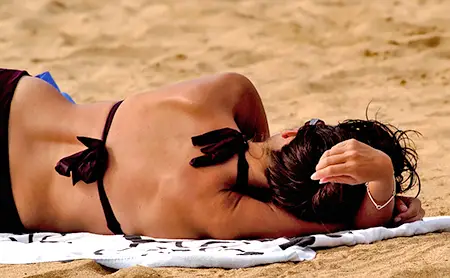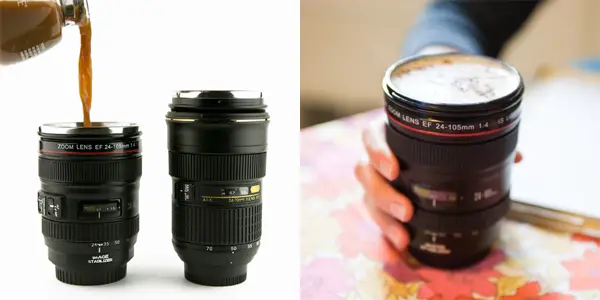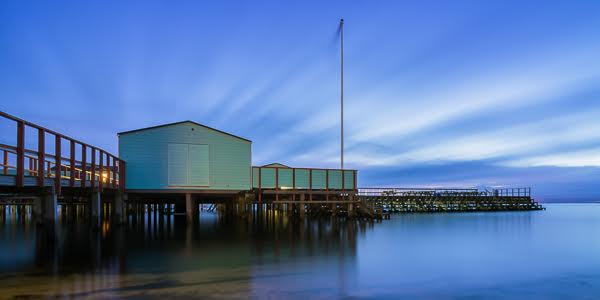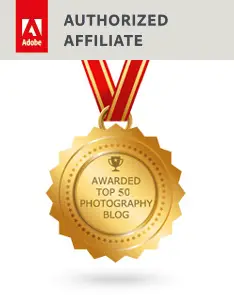 There has been a lot of discussion and a lot of fear among photographers regarding potential orphan works legislation.
There has been a lot of discussion and a lot of fear among photographers regarding potential orphan works legislation.
A major problem with current copyright law is that it does not provide a way to use a creative work that has been abandoned (no entity can be found to claim ownership). The premise behind an “orphan works” addition to copyright law is that it would provide a means for anyone to make use of copyrighted material that no longer has an owner.
It works by limiting damages that can be claimed if the work truly falls under orphan works protection. If a person wants to use a work they must ask permission from the copyright holder just as they do now. Under the current law, if they can’t find the owner they are out of luck. With the orphan works bill in effect, they could use the work after conducting a diligent search and failing to find the copyright owner. Later, if the original owner shows up, he must be paid fair royalties for the use of the work. It does not limit or change Fair Use.
This would be a huge boon to the public allowing new use of material that has lain dormant and forgotten for decades due to inflexible copyright restrictions. For example, you’d now be able to make reproductions of vintage family photos even though the original photographer cannot be located.
Obviously, a lot depends on how one defines “orphan” and “diligent search.” This has caused some debate among photographers and other artists who worry about corporations making blanket grabs of copyrighted material and claiming they conducted a search. This is mostly irrational fear. As written, that scenario would not pass the test of the “qualifying searches” section of the act which includes a court, following best practices as written by the copyright office, and that the search took place immediately prior to use. Of special note: the lack of any identifying information on the work is not sufficient to meet the standard. You really have to look.
The EU is studying the problem (link below). Canada actually has a similar orphan works bill in effect. Since 1990, they’ve issued a grand total of 222 licenses to use orphan works. This is hardly the blatant rights grab that some people fear.
You can read the announcement and text of the bills below. And for context I highly recommend reading the US Copyright Office report (linked below) which does a fantastic job of explaining all sides of this issue in plain language. Educate yourself before succumbing to the fear and doubt being cast on this.
Please share your opinion in the comments.
Survey: Are you for or against orphan works legislation?
Additional information:
- Six misconceptions about orphan works
- US Copyright office report on orphan works
- Orphan works report by the European Commission
###
WASHINGTON (Thursday, April 24, 2008) – Leading members of the Senate and House Judiciary Committees today introduced bipartisan, bicameral legislation to preserve so-called “orphan works” – works that may be protected by copyright, but whose owners cannot be found. Potential users of orphan works often fail to display or use such works out of concern that they may be found liable for statutory damages, amounting to as much as $150,000.
Legislation to address those concerns was introduced today in the Senate by Judiciary Committee Chairman Patrick Leahy (D-Vt.) and Sen. Orrin Hatch (R-Utah), a senior member and former chairman of the panel, and in the House by Rep. Howard Berman (D-Calif.), chairman of the House Judiciary Committee’s Subcommittee on Courts, the Internet, and Intellectual Property and Rep. Lamar Smith (R-Texas), ranking member of the House Judiciary Committee. The bill is co-sponsored in the House by Judiciary Committee Chairman John Conyers (D-Mich.) and Rep. Howard Coble (R-N.C.) The legislation would enable users to exhibit orphan works if, after a thorough, documented search, the copyright owners are unable to be located. The legislation outlines the criteria for such a search, and provides for court review to determine if a search has been adequate and done in good faith. If the copyright owner later emerges, the user must pay reasonable compensation to the owner. The bill also includes provisions to further protect owners of these orphaned copyrights, should any user exhibit bad faith.
“This legislation will help bring together potential users and owners of orphan works,” said Leahy. “But also as important, it will allow the public to view works that may remain orphaned. A Vermonter can restore a family photograph from three generations ago, even when the original photographer is no longer available to give permission. With this bill, we can preserve important parts of our personal and national heritage, without giving a free license to infringe on established copyright protections.”
“There are thousands of artistic creations around the country that are effectively locked away and unavailable for the general public to enjoy because the owner of the work is unknown. Identifying the owner of a copyrighted work is difficult in many cases and represents a huge liability to those who would bring the work into the public domain without permission,” Hatch said. “This bill represents a commitment from Congress to unlock orphan works so the general public may once again enjoy them.”
“Too many valuable works are unused because their creators are unknown, and potential users fear excessive liability,” said Berman. “We must act to lower the legal barriers that keep these works from the public.”
“Millions of copyrighted works are effectively ‘locked up’ and unable to be enjoyed by the public due to our current copyright system,” said Smith. “As a result, investments in new works and expositions by libraries, museums and others are frequently not undertaken due to the possibility of lawsuits and large statutory damage awards. By placing reasonable limitations on liability, while ensuring that owners receive compensation for the use of their works, the bills introduced today will help reduce uncertainty and encourage creativity.”
Leahy, Hatch, Berman and Smith have longstanding interests in intellectual property issues, and have introduced copyright legislation in the 110th Congress, including a bipartisan, bicameral bill to reform the patent system.









Wow, thanks. All I’ve heard about this new bill has been outrageous outbursts of how it violated everyone’s copyright. I’m glad I stumbled upon someone who actually took their time to research it themselves rather than just keep bitching about rumors.
(He, no comment of why I haven’t done any research myself, okay?)
Do people really not make copies of their family photos because the photog cannot be located? Screw that. You paid for them.. they’re yours to do with as you wish.
Now.. for commercial works.. that’s different.
Most photographs you get from professional portrait photographers, school photos, wedding photographs ARE commercial works and you are most likely breaking the law if you make unauthorized copies. It’s how the business-model works: those photographers make money by selling prints. If you bring in one of those prints to most labs, they will not reproduce it for you.
Thanks John for publishing a sensible, matter of fact, well informed, intelligent, non-scare-mongering article about this subject.
I heard about this on a forum and it frightened the hell out of me until I ‘Googled’ it and found your excellent article.
Well great!
If we assume that the examples provided above(222 apps in Canada, so a Vermonter can restore family photos from three generations past, etc) are typical of the type of circumstances the Orphan Works bill is meant to address it seems like their might be an easier solution than a radical shifting of the status quo.
Why not have all those interested in using images of unknown origin set up a site where the images in question and any available information can be viewed publicly by potential rights holders?
Just about every single member supported artist association in the U.S. is against this bill, Time Warner, Google, the RIA, Rupert Murdoch, and every other billion dollar media corporation is for it. Follow the money people!
The bill uses vague terms like “good faith” and “diligent search” so that the rights grabbers will have loop holes in court, if any artists can even afford to take them to court, for even if the artist wins, THEY CAN’T COLLECT ANY DAMAGES OR ATTORNEYS FEES!
And no, this bill is nothing even remotely like the Canadian law. The fact that Mr. Watson tries to pass it off as if it is, casts his intentions in ill light.
I’m no attorney but the Canadian law looks awfully familiar. It’s section 77 of the copyright act and like the proposed US bill it requires “reasonable efforts to locate the owner of the copyright” and the owner only has five years to come forward and collect royalties and if the licensee does not pay royalties the photographer can then sue in court—just like the proposed US bill. (And the orphan works protection does not apply if a court rules in your favor that the search was not reasonable in which case all normal copyright infringement rules apply.)
Maybe there is something else about the Canadian law that I am missing. Can you show me the differences?
I’m not exactly sure how the Canadian orphan rights law differs from this one, but I do know that it doesn’t involve commercial databases like this one does. Theirs involves a government-run database. That’s a big difference because even if an artist registers with five or six commercial databases there may still be hundreds more where they can’t be found.
222 orphaned works in Canada since 1990? Sure it doesn’t sound like a “blatant rights grab”, (provided this American model REALLY IS similar in practice to the Canadian law, which I doubt) but it doesn’t sound like it would really be “a huge boon to the public” either.
Erica, you said:
I’m glad I stumbled upon someone who actually took their time to research it themselves rather than just keep bitching about rumors.
Actually, This article has not been very thoroughly researched. Most of it was taken from a news report that I came across earlier today. The rest was quotes from the same three politicians I’ve been reading about the whole time this bill has been in the works. The “six misconceptions” article drastically twists and under-addresses the concerns people have and misquotes the IPA.
The article addresses a case for orphaned works, but not the orphaned works bill. Keep in mind that most opponents of the bill are not against orphaned works. They are against this bill’s failure to properly address the issue.
Also, sure, there’s a lot of random uninformed whining going on, but the valid points against this bill are certainly strong ones to consider.
For some well informed info about the other side of this coin, go to the website for the Illustrator’s Partnership of America. http://www.illustratorspartnership.org.
John,
After looking over section 77 of the Canadian Copyright law, I can see a lot of differences. I’m not sure if the Canadian version is better, but it seems like it might be.
For one thing, in the Canadian law the copyright board has to issue a license, whereas in the new US bill, the user just conducts their search, documents the process and keeps the documentation on record. Only in the case of a dispute does any official entity get involved. The commercial databases are supposed to verify the search steps the user went through in the event of a dispute.
This is probably why the Canadian law has seen so little action, because there is a central board you have to license through. The US copyright board has expressed that they “don’t feel they have the expertise” to handle licensing orphaned works. They’ve also mentioned that the board has already undergone an extensive technology overhaul and to do it again would be wasteful. That’s all in the statement made by Marybeth Peters at this link: http://www.copyright.gov/docs/regstat031308.html
This sounds like a lame excuse to me. You don’t write a certain process permanently into law simply because a more just process would be inconvenient at that particular moment in time.
It also differs because in Canada the search can be conducted by any means and doesn’t have to go through commercial databases. This means artists don’t have to register their work to be searchable for these purposes. That’s a big thing because the high cost of registering works is part of what people are so mad about.
Thanks, John for showing me where to find the Canadian law. I had been looking all over for that.
Actually, the Canadian system is different. Rather than an myriad of private companies rising up to serve as registries, our searches and registering are all done through one office. Therefore it is easy to register and know your work will be found if searched. That may account for the small total of licenses. With unlimited companies to register with, my chances of protecting my work are much slimmer. If the users “search” hits five companies I have not registered (because who can afford to register with all of them or even find them?), then I am out of luck.Plus, the amopunt I can claim for damages is limited to a paltry sum, making actual protection of my work through the courts expensive and pointless.